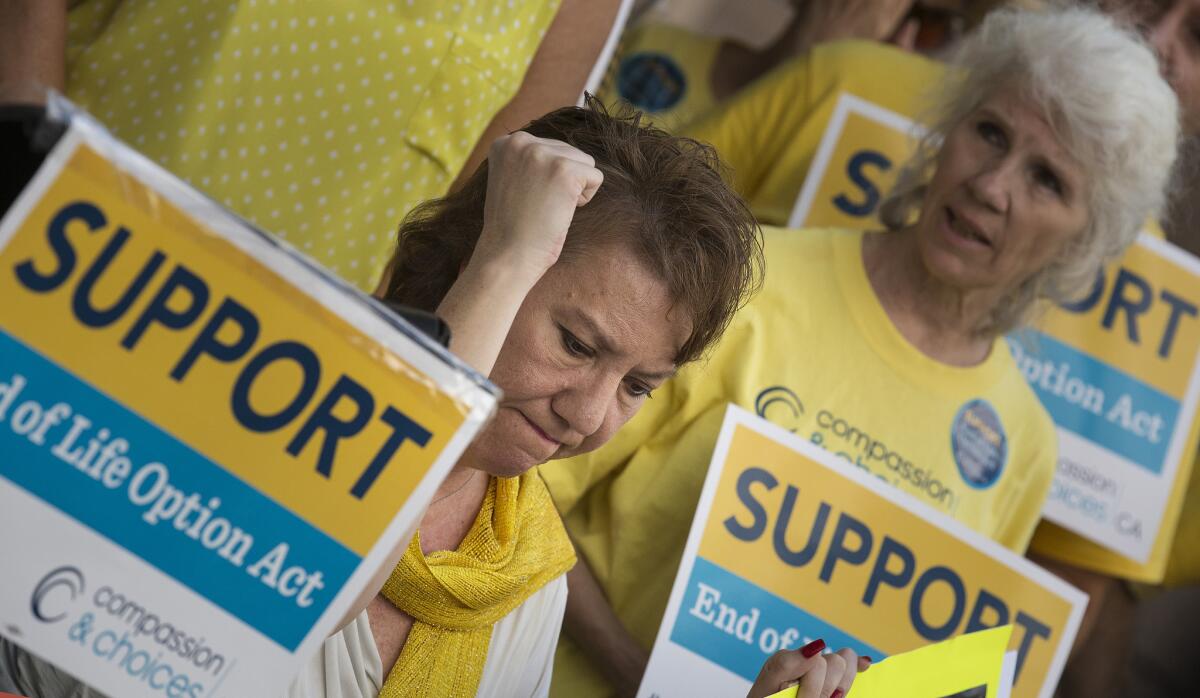The terminally ill lobby Brown and his staff as governor faces tough decision

Christy O’Donnell, a terminally ill former LAPD officer, center, thrusts her fist in the air at a rally in support of the End of Life Option Act in Los Angeles.
Reporting from Sacramento — As he faces an Oct. 7 deadline to sign or veto a bill allowing aid-in-dying measures in California, Gov. Jerry Brown and his staff have talked to terminally ill Californians, an indication he is open to considering their plea for approval of the bill.
Former LAPD Det. Christy O’Donnell, a lung cancer patient who has been given just months to live, said Friday she was recently granted a meeting with Nancy McFadden, a top advisor to the governor. O’Donnell’s message to Brown: “It is my strong hope that the governor’s decision will reflect what Californians want and need, which is the choice.”
What was the response? “The [governor’s] office has communicated that they are taking this decision very seriously,” O’Donnell said.
As The Times reported, Brown, a former Jesuit seminary student, had a telephone conversation with Brittany Maynard three days before she ended her life with drugs in Oregon, to avoid prolonged suffering from brain cancer.
SIGN UP for the free Essential Politics newsletter >>
Opposition has come from a coalition of groups representing the disabled, oncologists and the California Catholic Conference, the official public policy voice of the Catholic Church in California, which has urged people to contact the governor and ask him to veto the bill.
“Thousands of Catholic Legislative Network members have already sent emails urging him to veto this dangerous bill,” the conference said on its website.
Meanwhile, some supporters of the bill have been disappointed to learn that its implementation may be delayed. Bills approved during the regular legislative session take effect Jan. 1. But the aid-in-dying measure was approved during a special session on healthcare.
Such bills take effect 90 days after the special session is adjourned, which could happen in January at the earliest or November 2016 at the latest.
Deb Breiman, whose husband has been diagnosed with incurable cancer, said delaying the effect of the bill long into next year would be disappointing.
“It’s something people need now,” she said Friday.
ALSO:
Column: Aid-in-dying bill aligns with religious liberty
Los Angeles waterfront gets help from Gov. Jerry Brown
California mandates new high school lessons to prevent sexual assaults
More to Read
Sign up for Essential California
The most important California stories and recommendations in your inbox every morning.
You may occasionally receive promotional content from the Los Angeles Times.











